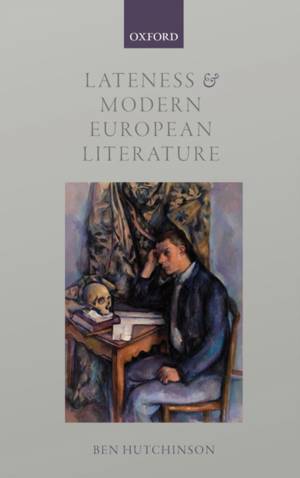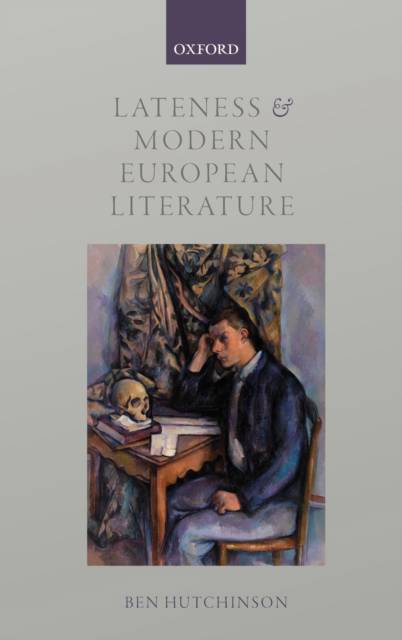
- Afhalen na 1 uur in een winkel met voorraad
- Gratis thuislevering in België vanaf € 30
- Ruim aanbod met 7 miljoen producten
- Afhalen na 1 uur in een winkel met voorraad
- Gratis thuislevering in België vanaf € 30
- Ruim aanbod met 7 miljoen producten
Zoeken
Omschrijving
Modern European literature has traditionally been seen as a series of attempts to assert successive styles of writing as 'new'. In this groundbreaking study, Ben Hutchinson argues that literary modernity can in fact be understood not as that which is new, but as that which is 'late'. Exploring the ways in which European literature repeatedly defines itself through a sense of senescence or epigonality, Hutchinson shows that the shifting manifestations of lateness since romanticism express modernity's continuing quest for legitimacy. With reference to a wide range of authors--from Mary Shelley, Chateaubriand, and Immermann, via Baudelaire, Henry James, and Nietzsche, to Valéry, Djuna Barnes, and Adorno--he combines close readings of canonical texts with historical and theoretical comparisons of numerous national contexts. Out of this broad comparative sweep emerges a taxonomy of lateness, of the diverse ways in which modern writers can be understood, in the words of Nietzsche, as
'creatures facing backwards'. Ambitious and original, Lateness and Modern European Literature offers a significant new model for understanding literary modernity.
'creatures facing backwards'. Ambitious and original, Lateness and Modern European Literature offers a significant new model for understanding literary modernity.
Specificaties
Betrokkenen
- Auteur(s):
- Uitgeverij:
Inhoud
- Aantal bladzijden:
- 352
- Taal:
- Engels
Eigenschappen
- Productcode (EAN):
- 9780198767695
- Verschijningsdatum:
- 11/10/2016
- Uitvoering:
- Hardcover
- Formaat:
- Genaaid
- Afmetingen:
- 236 mm x 160 mm
- Gewicht:
- 742 g

Alleen bij Standaard Boekhandel
+ 313 punten op je klantenkaart van Standaard Boekhandel
Beoordelingen
We publiceren alleen reviews die voldoen aan de voorwaarden voor reviews. Bekijk onze voorwaarden voor reviews.











